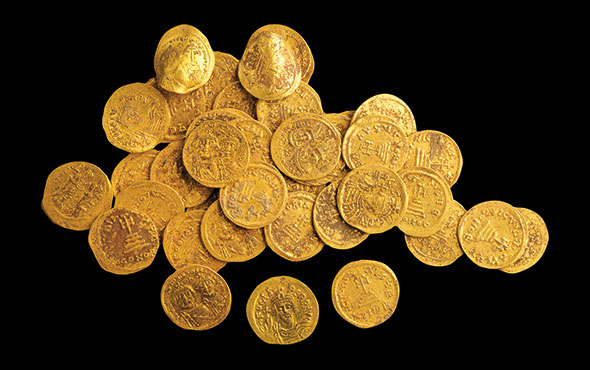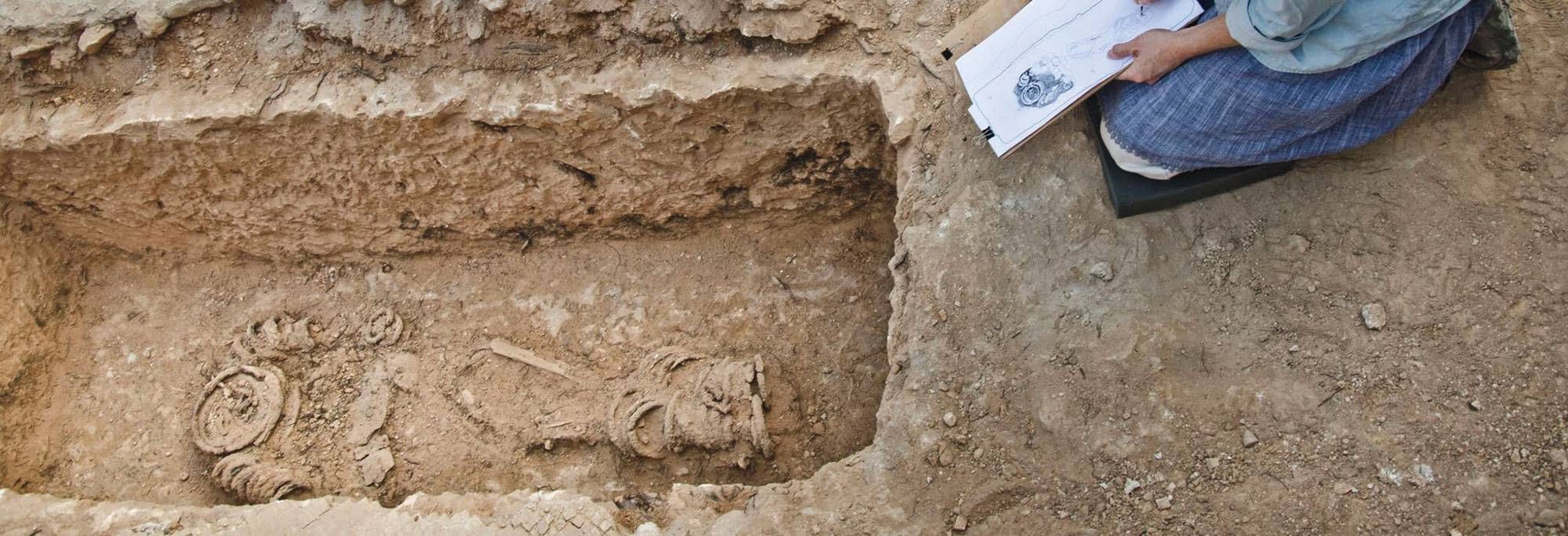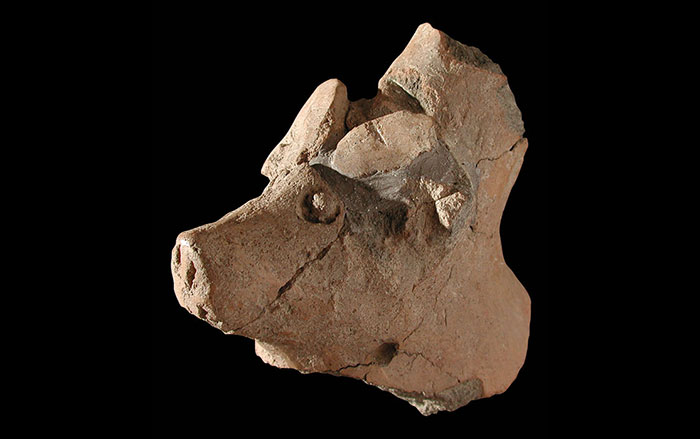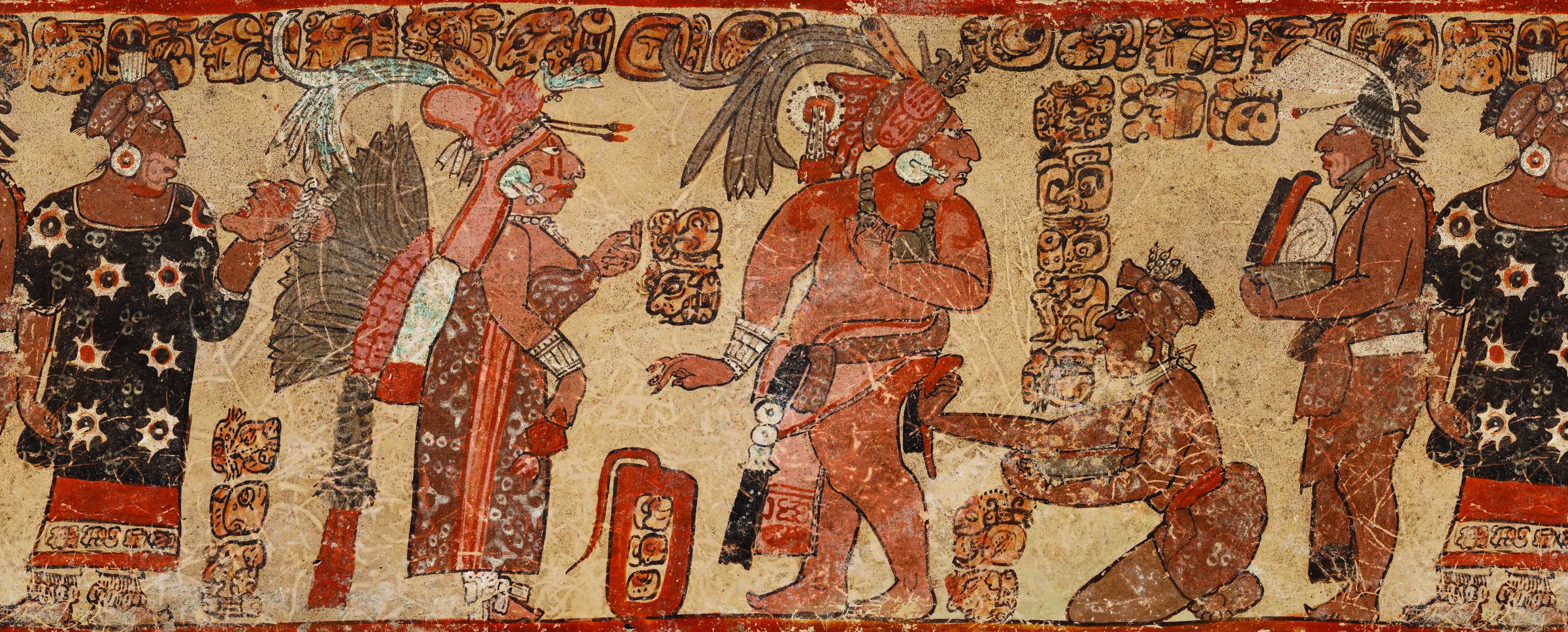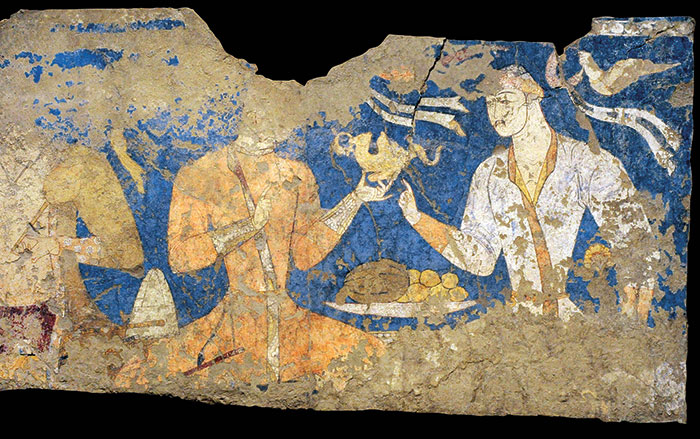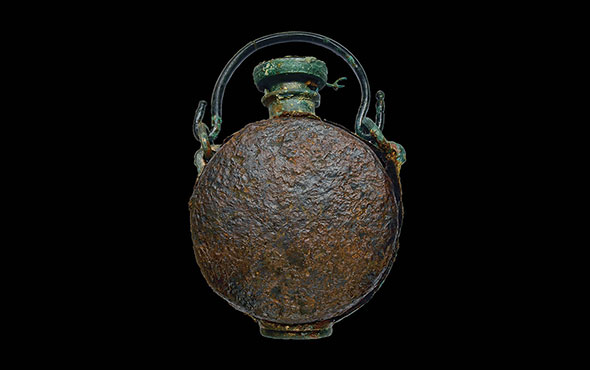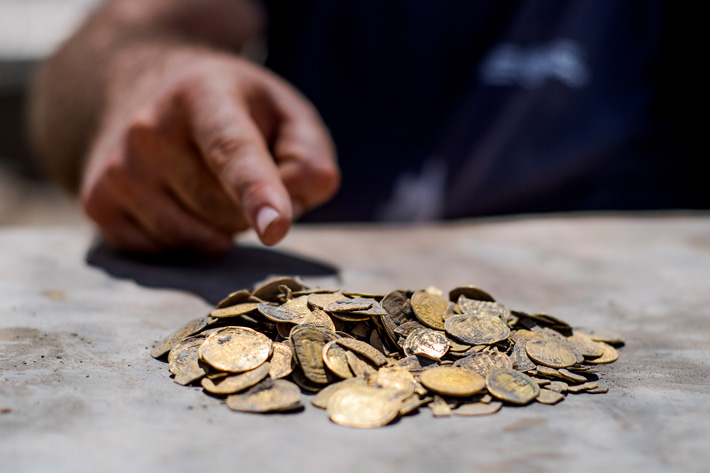
HOLON, ISRAEL—BBC News reports that a volunteer member of a team of researchers led by Liat Nadav-Ziv and Elie Haddad of the Israel Antiquities Authority discovered a cache of more than 400 solid gold coins and pieces of cut gold coins during an archaeological investigation at a construction site in central Israel. Stored in a clay vessel, which had been buried and secured with a nail, most of the coins were minted in the late ninth century A.D., when what is now central Israel was part of the Islamic Abbasid Caliphate. Altogether, the cache would have been enough money to purchase a luxurious house in Fustat, the capital of Egypt, the researchers explained. One of the cuttings is a fragment of a gold solidus minted in Constantinople during the mid-ninth-century reign of Byzantine emperor Theophilos. Coin expert Robert Kool said the presence of the solidus is evidence of contact through war and trade between the two empires. To read about the Islamic conquest of the region, go to "Expanding the Story."


